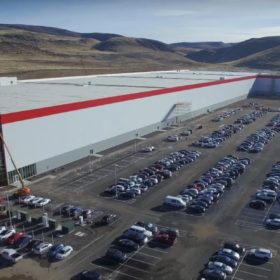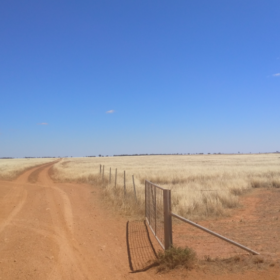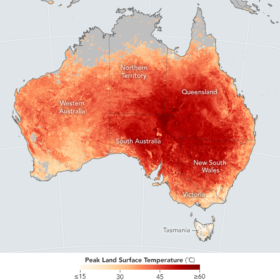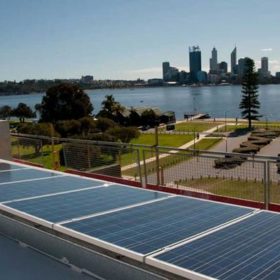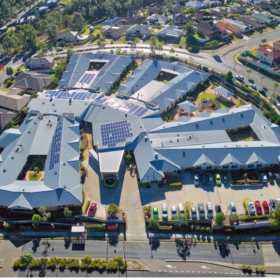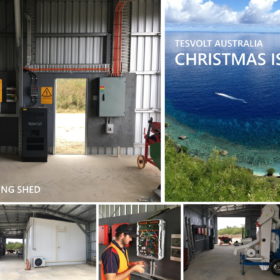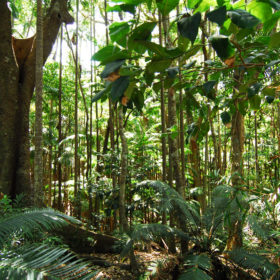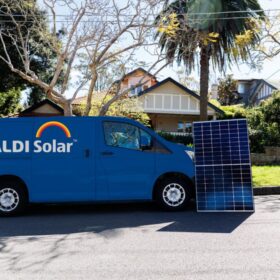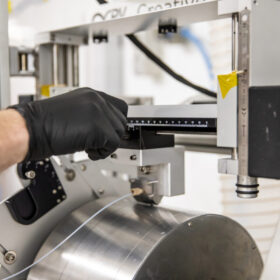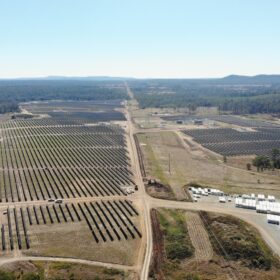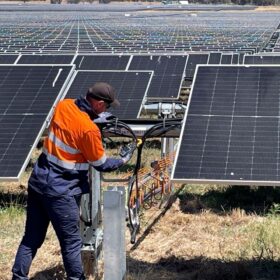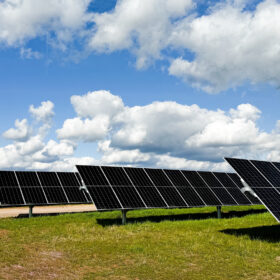Tesla dives deeper into energy storage, as solar slumps
Elon Musk’s company is seeing tremendous success with its EVs and global manufacturing, and dramatically scaling its energy storage deployment, but the Solar Roof is still not being widely deployed.
OECD’s environmental KPIs for Australia add grist to calls for change
The OECD Environmental Performance review of Australia, released yesterday, comes at a critical time in the lead-up to Federal elections in May. Three formerly Liberal-aligned candidates are standing as independents in opposition to longstanding Liberal members of parliament, on the basis that the Liberal National Party, in power since 2013 has failed to adequately address climate change and its many challenges, including environmental degradation. The OECD review agrees with them.
Massive solar+storage projects move forward in South Australia
The Robertstown region could host two massive renewable energy projects – a proposed 500 MW solar farm collocated with 250 MW/1000 MWh of battery storage, and a construction-ready 200 MW solar PV farm and 120 MWh energy storage component that form part of the Solar River Project, the size of which could double at a later stage.
Solar+wind+storage project waved through in Western Australia
A major project featuring 120 MW wind and 50 MW solar PV in Western Australia has secured all state and federal approvals and is scheduled to start construction later this year. An energy storage facility is to be included at a later stage.
Corporate clean energy smashes records
Companies in the United States accounted for more than 60% of the clean energy deals signed by corporations worldwide last year, according to BloombergNEF. A proposed renewable portfolio standard for Chinese business, though, could turn the picture upside down in a year’s time.
Heatwaves and electricity supply, or how to stop a ticking bomb
As scorching heatwave drove up air conditioning power demand, faults at coal-fired power plants were directly responsible for blackouts across Victoria and South Australia. Extreme weather is debunking arguments for new fossil fuel generation, and signaling Australia’s energy security lies in renewables.
Sumitomo acquires WA’s leading solar retailer Infinite Energy
Japanese industrial giant Sumitomo Corporation has fully acquired Infinite Energy, Western Australia’s solar installer and electricity retailer, thus expanding on its local coal-focused portfolio.
Renewables turn emissions tide and rooftop solar shoulders heatwave load
The Australia Institute’s first emissions audit of 2019 shows renewables pushing coal aside to reduce Australia’s emissions 20% below the peak recorded in 2008; and the load that January’s high temperatures would normally exert on the grid has been mitigated by high uptake of rooftop solar.
Christmas Island taps into off-grid solar in post-mining land reclamation
As part of a scientific research focusing on agriculture on exhausted mining areas, a seed cleaning shed on Christmas Island is being powered by solar+storage. The switch from polluting diesel has not only brought a low maintenance, silent and environmentally friendly solution to this remote location, but also lowered operational costs nearly fivefold.
‘No alternative to 100% renewables’
Transition to a world run entirely on clean energy – together with the implementation of natural climate solutions – is the only way to halt climate change and keep the global temperature rise below 1.5°C, according to another significant study.
